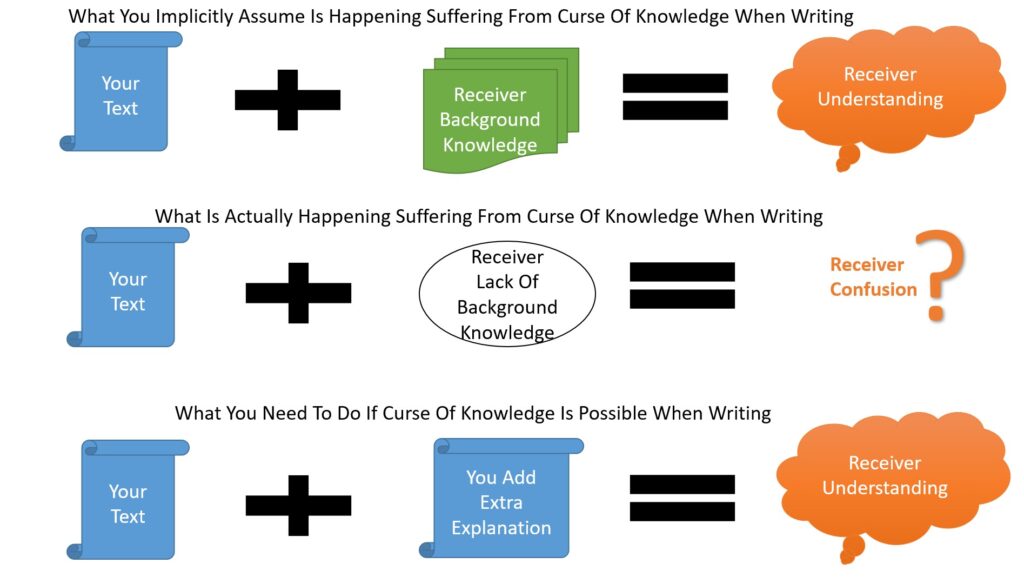This post looks at the problem of writing and the curse of knowledge. How what we know can limit our effectiveness in communicating.
Following Rules Can Be Helpful But Don’t Get Too Excited
Sometimes it seems impossible to learn languages because there is often no logical reason for the rules that apply. What is worse, people who care about such things get terribly excited about the rules. This makes committing a minor mistake seem like a disaster akin to messing up a heart transplant. I personally just can’t bring myself to care about when to use fewer or less. As such, I was pleased that Steven Pinker seems to give permission to ignore people who are too obsessive about language rules. A running theme in his book, The Sense of Style, is that the key thing is getting your message across. This is much more important than the arcane rules. Such rules sometimes just seem like ways to denigrate people from less wealthy backgrounds. Concentrate on making your writing enjoyable to read and easily understood seems like good advice to me.
Curse Of Knowledge
Academics don’t tend to follow this advice. Why not? I agree with Pinker that simplistic explanations — academics are pompous or trying to impress people — aren’t the (complete) answer. Pinker turns to a classic villain in decision-making, the Curse of Knowledge.
This is “a difficulty in imagining what it is like for someone else not to know something that you know.”
Pinker, 2014, page 59
We can all manifest the Curse of Knowledge which makes it seems to me like a reasonable candidate for causing communication difficulties. As a teacher, I feel a constant danger in assuming that students know what I mean. (Especially if, like me, a lot of your references are to England in the 1980s which aren’t 100% transparent to American students born in the twenty-first century.)

Similarly, reviewers often don’t seem to know what I expect them to already know. They miss what I think are obvious connections. When planning any writing it is easy to write for yourself. This is a major problem because everyone is unique. (Although in a spirit of pedantry no one is “very unique”.)
Consider What Your Reader Knows
The lesson from Pinker’s Sense of Style: Consider what your reader knows. Avoid acronyms and don’t rely on obscure knowledge that only you have. You really must make it easier for the reader than you think you need to.
For more on the curse of knowledge see here.
Read: Steven Pinker (2014) The Sense of Style, Viking Press.
